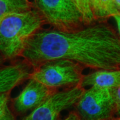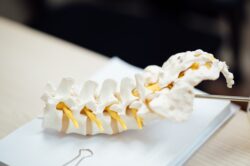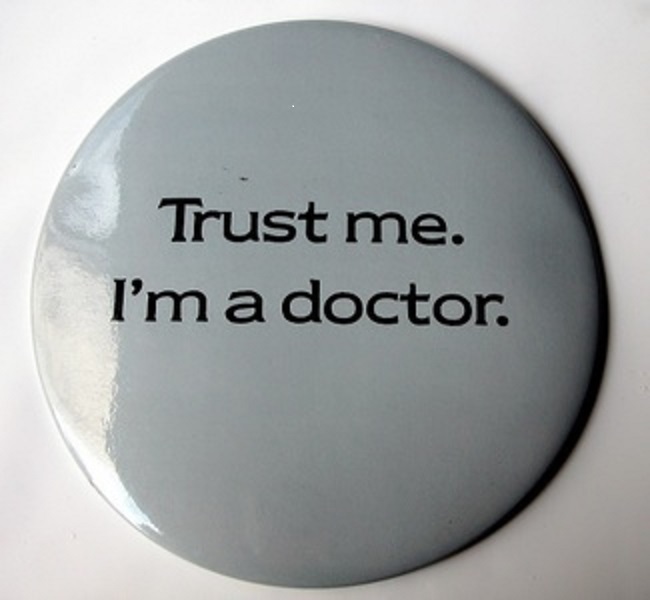A Mayo Clinic study has shown that hysterectomy without removal of ovaries increases the risk of heart disease. Women who had a hysterectomy before age 35 are at a particularly high risk. Specifically, their risk was 4.6-fold for congestive heart failure and 2.5-fold for coronary artery disease. But this association is not new. This 1981 study showed a 3-fold increased risk of heart disease after a premenopausal hysterectomy. This would include most women who undergo hysterectomy. This 1982 study and this one from 1985 cite the uterine substance prostacyclin as the likely factor in women’s heart health. Since about 45% of women have a hysterectomy, it is no wonder heart disease is the #1 killer of women!
Heart Disease: Just the Tip of the Iceberg
Hysterectomy is bad for much more than the heart.
- Hormone changes. Hysterectomy impairs the function of the ovaries which are part of the endocrine system. Multiple studies have shown this including this one and this one. This would logically predispose hysterectomized women to the same increased health risks and accelerated aging of ovary removal (castration). According to numerous studies such as this one and this Mayo Clinic one, the risks of ovary removal include heart disease, stroke, metabolic syndrome, osteoporosis, hip fracture, lung cancer, colorectal cancer, dementia, Parkinsonism, impaired cognition and memory, mood disorders, sleep disorders, adverse skin and body composition changes, adverse ocular changes including glaucoma, impaired sexual function, more severe hot flushes, and urogenital atrophy. Wow, what a list for such a common and rarely necessary surgery!
- Figure changes. The uterus and its ligaments are key to the integrity of the pelvis. The cutting of those ligaments, the pelvis’ support structures, destroys pelvic integrity. As a result, a woman’s figure changes. The hips widen and the torso collapses until the rib cage sits directly on the hip bones. This causes a shortened and thickened midsection, protruding belly, and loss of the curve in the lower back making the derrière appear flat. These changes lead to back, hip, and leg problems, chronic pain, and impaired mobility. These effects are discussed here. Back pain after hysterectomy is one of the (many) “dirty little secrets” of Gynecology.
- Organ dysfunction. The uterus sits between the bladder and bowel and keeps them where they belong. Hence, these organs drop and are adjacent to each other after hysterectomy. These changes can cause dysfunction as discussed here and here.
- Sexual dysfunction. The uterus is a sex organ. Many hysterectomized women report a loss of sexual function – libido, arousal, and ability to orgasm – with or without ovary removal. Many also report feeling asexual and emotionally empty. This may explain why a renowned gynecologist referred to the uterus as a woman’s “heart center.” How ironic that the uterus is also essential to heart health!
- Cancer risks. Last but not least, removal of the uterus increases the risk of some cancers. These include thyroid, renal cell (kidney), bladder, rectal and brain cancers.
The Devastating Toll of Hysterectomy
Women’s experiences are also compelling evidence of the devastating effects of hysterectomy. It can affect every relationship and aspect of life having far-reaching societal repercussions. Here, here and here are some heartbreaking stories of shattered lives. The Bleeding Edge documentary chronicles the stories of a few women who were harmed by Essure (tubal sterilization coils) and subsequently had hysterectomies. The HERS Foundation’s recently launched “In My Own Voice” project includes some women’s stories. Hopefully, more will come forward and share their experiences.
The uterus and ovaries are essential to a woman’s whole life. Female organ removal has been proven over and over again to be incredibly harmful as far back as 1912. Yet 45% of women end up having a hysterectomy. And over half are castrated at the same time which further increases the risk of heart disease. Additionally, more women have ovaries removed during separate surgeries. It is no wonder heart disease is the #1 killer of women.
Female organ removal is the biggest healthcare con as discussed here. Lack of informed consent is standard. And even worse, gynecologists commonly use unethical tactics such as instilling fear of cancer and intentionally misinforming women about the consequences. If women knew the facts, very few would consent to hysterectomy or oophorectomy.
In conclusion, the medical industry can no longer put its head in the sand or deny the horrific harm of these surgeries. Only 10% are done for a cancer diagnosis. Yet, it appears that they are gearing up to do even more. The Graduate Medical Education (GME) hysterectomy minimum was recently increased from 70 to 85. When will the ethical medical professionals or authorities address this intentional harm and sexual assault of almost half of U.S. women?
We Need Your Help
More people than ever are reading Hormones Matter, a testament to the need for independent voices in health and medicine. We are not funded and accept limited advertising. Unlike many health sites, we don’t force you to purchase a subscription. We believe health information should be open to all. If you read Hormones Matter, and like it, please help support it. Contribute now.
Yes, I would like to support Hormones Matter.
Image from PxHere; CCO public domain.
This article was published originally on February 12, 2019.







